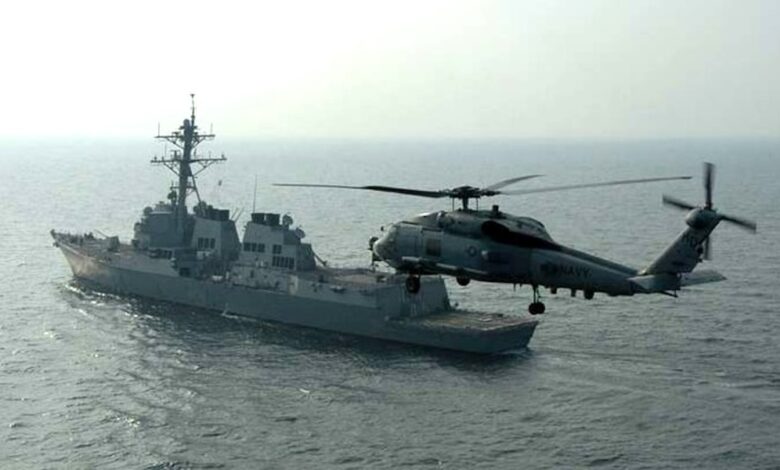US discusses Red Sea naval escorts with allies

The US is in discussions with allies to create a naval task force to chaperone merchant ships through the Red Sea amid a severe drop in security in waters off Yemen.
Israel’s near two-month war with Hamas has spilled onto the high seas in recent weeks with Houthi militia from Yemen targeting a range of ships with links to Israel. One car carrier with its 25 crew was hijacked and remains in Yemeni waters, while many other ships have been targeted by rockets and drones, including three ships in the space of a few hours on Sunday.
Jake Sullivan, America’s national security adviser, said on Monday that naval escorts could be the appropriate response to the targeting of ships in the region.
“We are in talks with other countries about a maritime task force of sorts involving the ships from partner nations alongside the United States in ensuring safe passage of ships in the Red Sea,” Sullivan told reporters at the White House.
Sullivan said that the Houthi attacks were “fully enabled” by Iran.
“They’re the ones with their finger on the trigger,” he said of the Houthis. “That gun, the weapons here, are being supplied by Iran, and Iran we believe is the ultimate party responsible for this.”
The International Chamber of Shipping has called on states that have influence in the region to use everything within their power to maintain freedom of navigation, and dissuade the antagonists from persisting in what the lobby group described in a release as “aggressive and illegal action that disrupts trade, and victimises innocent seafarers”.
